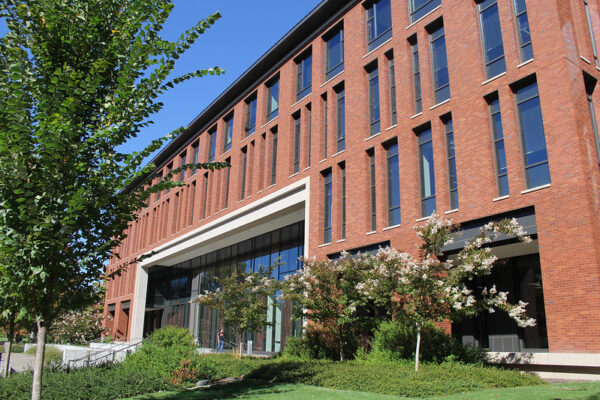Ayra Mani appointed Berliner Professor of Internal Medicine (Cardiology)
Dr. Ayra Mani, an internationally recognized cardiovascular physician and investigator, was recently appointed the Robert W. Berliner Professor of Internal Medicine (Cardiology) and Professor of Genetics, effective immediately.
Mani initiated received his M.D. from Johannes Gutenberg University in 1991 in Germany where he had begun his scientific studies in cancer research. Later that year, he arrived at Yale and worked with Dr. Fred Gorelick on pancreatic exocrine diseases in the Department of Cell Biology and Gastroenterology prior to starting his Internal Medicine residency training at Yale New Haven Hospital, which he completed in 1996 after which he was chosen as chief resident. He then pursued a cardiovascular clinical fellowship at Yale along with post-doctoral studies in the Department of Genetics under Dr. Richard Lifton, where he began his focused work on human cardiovascular genetics. He joined the faculty in the Department of Internal Medicine, Section of Cardiovascular Medicine, initially as an instructor. He was appointed to assistant professor in 2002 and promoted to professor of medicine and genetics in 2016.
He has led cutting-edge studies into the genetic basis underlying common cardiovascular clinical syndromes such as atherosclerotic coronary artery disease (CAD), metabolic syndrome, patent ductus arteriosus (PDA) and atrial fibrillation (AF). He employs a systems biology approach, combining functional genomics, epigenetics, transcriptomics, proteomics, and gene editing in vivo and in vitro to understand the molecular mechanisms underlying metabolic syndrome and its traits of obesity, hyperlipidemia and hypertension, and its complications of CAD, AF, and Type 2 diabetes (T2DM). He has recruited several large kindreds with early onset CAD and multiple metabolic risk factors for genetic and metabolic studies. In so doing, his research has mapped and identified several human disease genes for CAD, PDA, and T2DM, as well as for bicuspid aortic valve among other syndromes. His research program has also equipped the Program for Cardiovascular Genetics at Yale with modern genotyping techniques that have allowed exploration and access to the most extreme inherited cardiovascular disorders among our patients and allowed identification of disease genes for rare disorders.
Beyond defining gene mutations, his laboratory has unraveled the functions of disease genes and identified novel targets for pharmaceutical intervention. Using mouse models, he identified novel gain of function mutations in DYRK1B kinase that are now associated with early-onset CAD, T2D and metabolic traits including fatty liver disease. Additionally, novel mutations in a gene encoding a pancreatic protease in subjects with early onset CAD and metabolic syndrome, CELA2A, have led to a potential therapy for metabolic syndrome. CELA2A normally exhibits a postprandial rise in humans and reduces platelet GPIIbIIIa activity and platelet aggregation, whereas mutant proteins inhibit the rise and potentiate the effects on platelets. A recombinant form of the unmutated protein ameliorates the impact of the mutant protein in mouse models. Mani has filed a patent based on this finding and is exploring its role as a novel therapy for metabolic syndrome.
Mani has published his research findings in leading journals such as Science, NEJM, Cell Metab, PNAS, Nature Genetics, and others. Due to these and other scientific accomplishments, he has been invited to speak globally and has been recognized with multiple fellowships and awards, including the highly coveted NIH Outstanding Investigator Award in 2017.
Throughout his academic career, Mani has remained clinically active with an ambulatory referral practice in cardiovascular genetics as well as attending service on our acute care consultative in-patient services. In his clinical and scientific roles, he has committed substantially to the educational programs of the Yale School of Medicine. He served as director of the medical school cardiovascular module from 2008 to 2018, dedicated effort toward didactic teaching of clinical residents and fellows, and has served as a sought-after mentor to countless graduate students and post-doctoral associates whose careers he helped guide in his laboratory.













